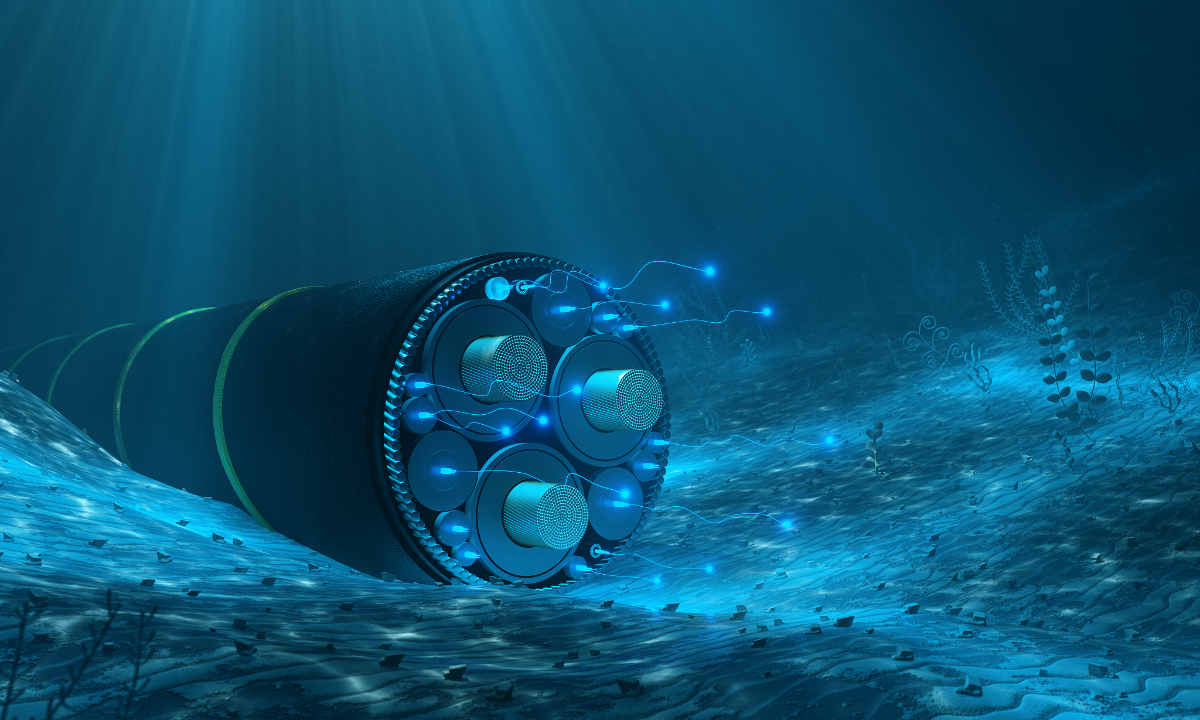Submarine cables become tool for certain countries to steal intelligence: China's National Security Ministry

Photo:VCG
Submarine cables have in recent years become a tool for some countries to steal intelligence information and even seek geopolitical interests, China's Ministry of State Security revealed on Friday.
Materials exposed by former US intelligence department employee Edward Snowden show that US' National Security Agency has for decades had an "Upstream" program parallel to the "Prism" program, using its bandwidth advantage to carry out round-the-clock, large-scale monitoring and eavesdropping activities on global submarine cables, severely weakening the reliability of the global network communication infrastructure and posing a huge threat to the information security of countries around the world.
Submarine cables are important infrastructure that maintains communication and trade between different countries, serving as the core carrier for countries around the world to participate in global economic and social activities in the digital economy era. They handle 99 percent of global intercontinental communication and data flow, serving as the international communication artery that ensures the stable operation of global communication and economic cooperation.
In the context of rapid development in networking, digitization, and intelligence, submarine cables play a crucial role in connecting different countries across the oceans and providing communication services to remote areas, occupying an indispensable position in the global communication network system.
The submarine cable industrial chain includes cable production, surveying, construction, and maintenance. The industry has high technological barriers, large construction difficulties, and has formed a highly concentrated global industrial structure.
With continuous increase in funding and technological investment, China has gradually caught up with the pace of international advanced technology development, continuously breaking through in the field of high-end technology equipment, and has now become one of the few countries in the world with a complete submarine cable industrial chain. China deeply participates in international submarine cable construction and has achieved fruitful results.
However, some countries, in order to maintain a hegemonic position, frequently impose sanctions on Chinese companies in related fields with the excuse of national security, and even cooperate with allies to strengthen containment and suppression, seriously hindering the development of related industries in China.
Submarine cables are hidden deep beneath the sea, and they carry important and sensitive information in various fields such as politics, military, economy, and society. They are out of sight and difficult to protect. Once they are damaged or infiltrated, it will not only pose serious data security risks but also require a significant amount of time and resources to recover. This will inevitably cause immeasurable and significant losses to national security and social development.
Facing a severe and complex situation and the real threat from foreign intelligence agencies, the state security authorities will adhere to the overall national security concept, closely guard against and lawfully combat the infiltration, sabotage, and espionage activities of foreign forces on our underwater critical infrastructure and cross-border information data. China will effectively strengthen its ability and level of safeguarding security in emerging fields, and fully defend our country's sovereignty, security, and development interests.
Global Times


